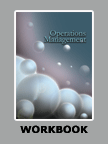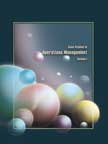Operations Management at Tata Motors
|
|
ICMR HOME | Case Studies Collection
Case Details:
Case Code : OPEA003
Case Length : 22 Pages
Period : 2003
Organization : Tata Motors
Pub Date : 2004
Teaching Note :Not Available
Countries : India
Industry : Automobile
To download Operations Management at Tata Motors case study
(Case Code: OPEA003) click on the button below, and select the case from the list of available cases:

Price:
For delivery in electronic format: Rs. 300;
For delivery through courier (within India): Rs. 300 +Shipping & Handling Charges extra
» Operations Case Studies
» Case Studies Collection
» ICMR HOME
» View Detailed Pricing Info
» How To Order This Case
» Business Case Studies
» Case Studies by Area
» Case Studies by Industry
» Case Studies by Company 
Please note:
This case study was compiled from published sources, and is intended to be used as a basis for class discussion. It is not intended to illustrate either effective or ineffective handling of a management situation. Nor is it a primary information source.
Chat with us

Please leave your feedback

|
|




<< Previous
If you introduce a new vehicle, for example, and the
management cannot adequately determine what the market wants, the company is in
trouble. Theoretically, the top managers of a company should take up the role of
that ideal customer. They should be driving their competitors' vehicles, they
should be driving the best-of-breed vehicles, and they should be making cost
comparisons. "While a top manager should be the ideal customer, he should also
be the greatest critic of his company's products. If the CEO compromises, or is
only looking at the margins, then even if he is successful, the company's
success will be short lived.
- Ratan Tata, the Chairman, Tata Group
Introduction
|
In 2003, Tata Motors, earlier known as Tata Engineering and Locomotive Co. Ltd.
(TELCO), was one of the largest companies in the Tata Group. Tata Motors* was
India's leading commercial vehicle manufacturer and the third largest passenger
car manufacturer.
Tata Motors was the sixth largest truck manufacturer in the
world . In 2003, Tata Motors recorded net sales of Rs.9093.2 crores and a net
profit of Rs.300 crores. The Tata Indigo was declared the best value for money
car at the prestigious CNBC Auto Car Auto Awards 2003. Tata Indica had also
received the voice of the customer award for the best diesel small car at NFO
Automotive India 2002.
|

|
In October 2003, Tata Motors received the Balanced Scorecard Collaborative Hall
of Fame Award for having achieved a significant turnaround in its overall
performance.
Background Note
In 1868, Jamsetji Nusserwanji Tata, the founder of the Tata group, started a
private trading firm in Bombay with a capital of Rs.21,000. His travels in
the Far East and Europe inspired him to start manufacturing cotton goods.
|
|
In 1874, the first Indian textile mill, The Central India Spinning, Weaving
& Manufacturing Company, was established. In 1877, Jamsetji launched the
famous Empress Mill in Nagpur. And in the same year, Tata and Sons was set
up. In 1886, Jamsetji launched the Swadeshi Mills to mark the beginning of a
movement to popularize the use of indigenous goods as opposed to British
goods. This marked an important step forward in India's struggle for
freedom. This mill was actively supported by Indian shareholders. Jamsetji
foresaw the significance of the industrial revolution for India and spelt
out the three basic ingredients that were needed for progress: Steel,
hydroelectric power, and technical education. |
Operations Management at Tata Motors
- Next Page>>
|
|










